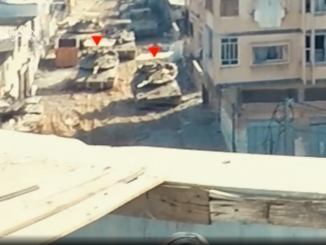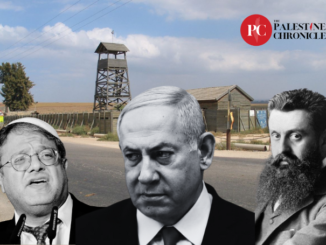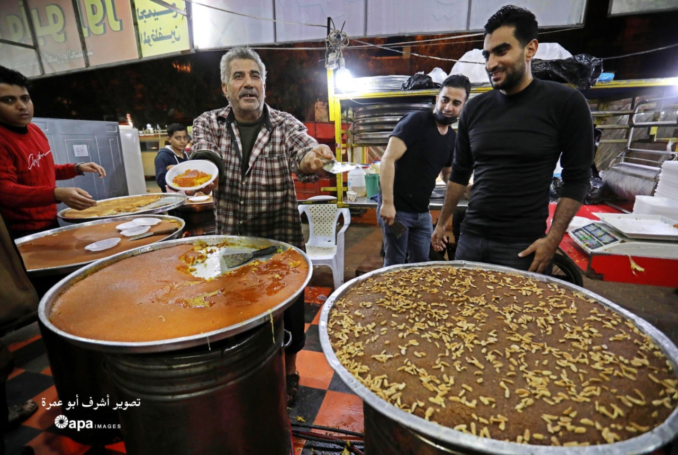
Masoud Muhammad al-Qatati, known as ‘Abu al-Ghalaba’, was killed when an Israeli missile hit his home in Gaza City.
Located near the Dawar Dawla roundabout in the Zaitoun neighborhood of Gaza City, in a small shop with no aesthetic features or distinctive lighting, you’ll find Abu al-Ghalaba’s shop where he sells popular sweets to the people of Gaza.
“Abu al-Ghalaba” is known to all, rich and poor alike, in the Gaza Strip. It is the most famous sweets shop in Gaza. It consists of a small cart with barrels lined up that serve as a display area for his sweets.
The unique trait that sets his shop apart is that anyone who arrives gets sweets, whether they have money or not. These sweets are for all the people of Gaza.
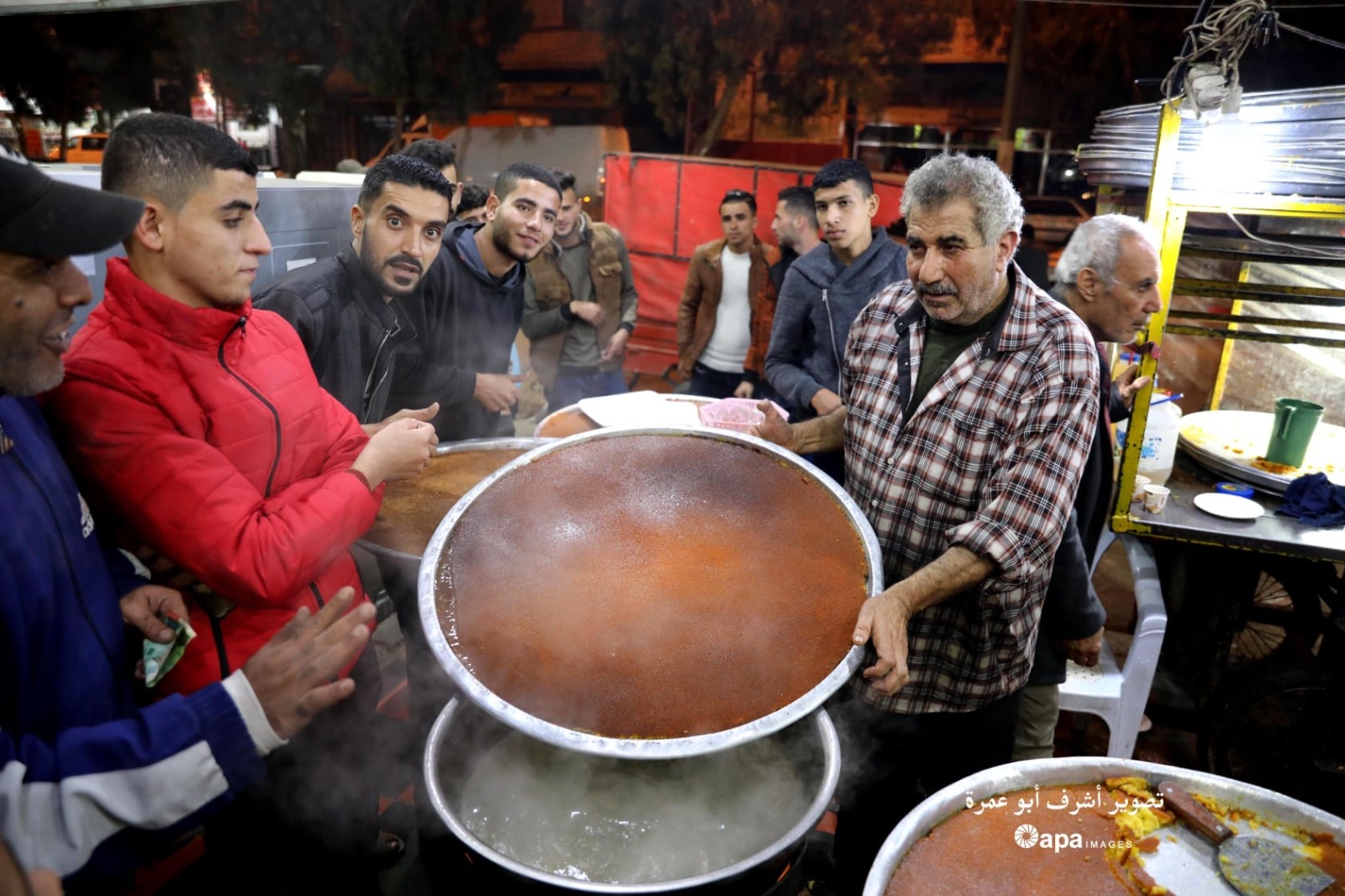
Masoud Muhammad al-Qatati, known as “Abu al-Ghalaba,” which in Arabic means father of the poor, was the owner of the shop known for selling “Nablus-style knafeh, Arabic knafeh, Istanbul knafeh, and Ramadan qatayef.”
He was killed when an Israeli missile hit his home in Gaza City.
The killing of Abu al-Ghalaba created a storm on social media. He was one of the most celebrated figures in Gaza, and the majority of Gaza’s residents would call him a friend.
The people of Gaza had enjoyed sweets from Abu al-Ghalaba’s shop for many years. Going to his shop to purchase sweets was a sort of ritual during festive occasions for countless families in the Strip.
He Brought Joy to Everybody
Hanan Al-Saloul, a friend and customer said, “Abu al-Ghalaba, the Nablus sweets seller, was the one who warmed the hearts of the young and old, bringing joy to those with money and those without,” Hanan Al-Saloul, a friend and customer, said.
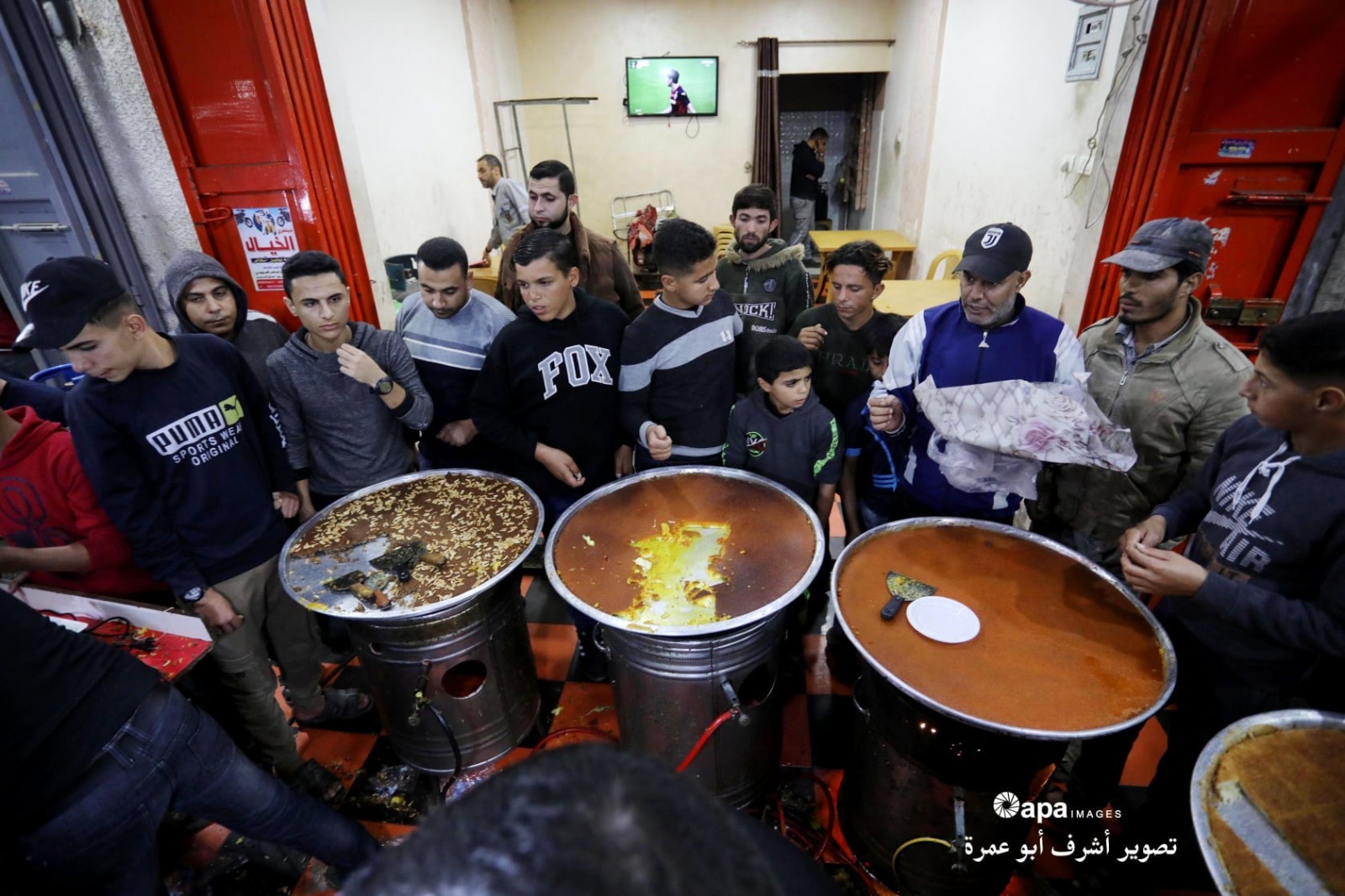
Mustafa Wajih, who was an admirer of the shop owner’s generous heart, pointed out that Abu al-Ghalab was an example of an authentic Palestinian.
“Abu al-Ghalaba used to feed everyone sweets. He sold Nablus-style knafeh for just one shekel per plate, while other shops sold it for 5 shekels. Abu al-Ghalaba was always a supporter of the poor,” he said
“I hope the war on Gaza stops immediately,” Wajih continued.
“I hope that Abu al-Ghalaba’s children, those who are still alive, continue his journey and carry on his legacy of comforting the hearts of the poor. Abu al-Ghalaba’s sweets will always remain open to everyone.”
All the Poor in Gaza Will Miss Him
Mona Jabara commented on Abu al-Ghalaba’s death, saying, “What he offered to the poor in Gaza through his individual work and his own funds deserves recognition and appreciation.”
“All the poor people of Gaza, especially in the neighborhoods of Al-Zaytoun and Al-Shujaiya, will miss Abu al-Ghalaba greatly,” Ibrahim Muzher explained.
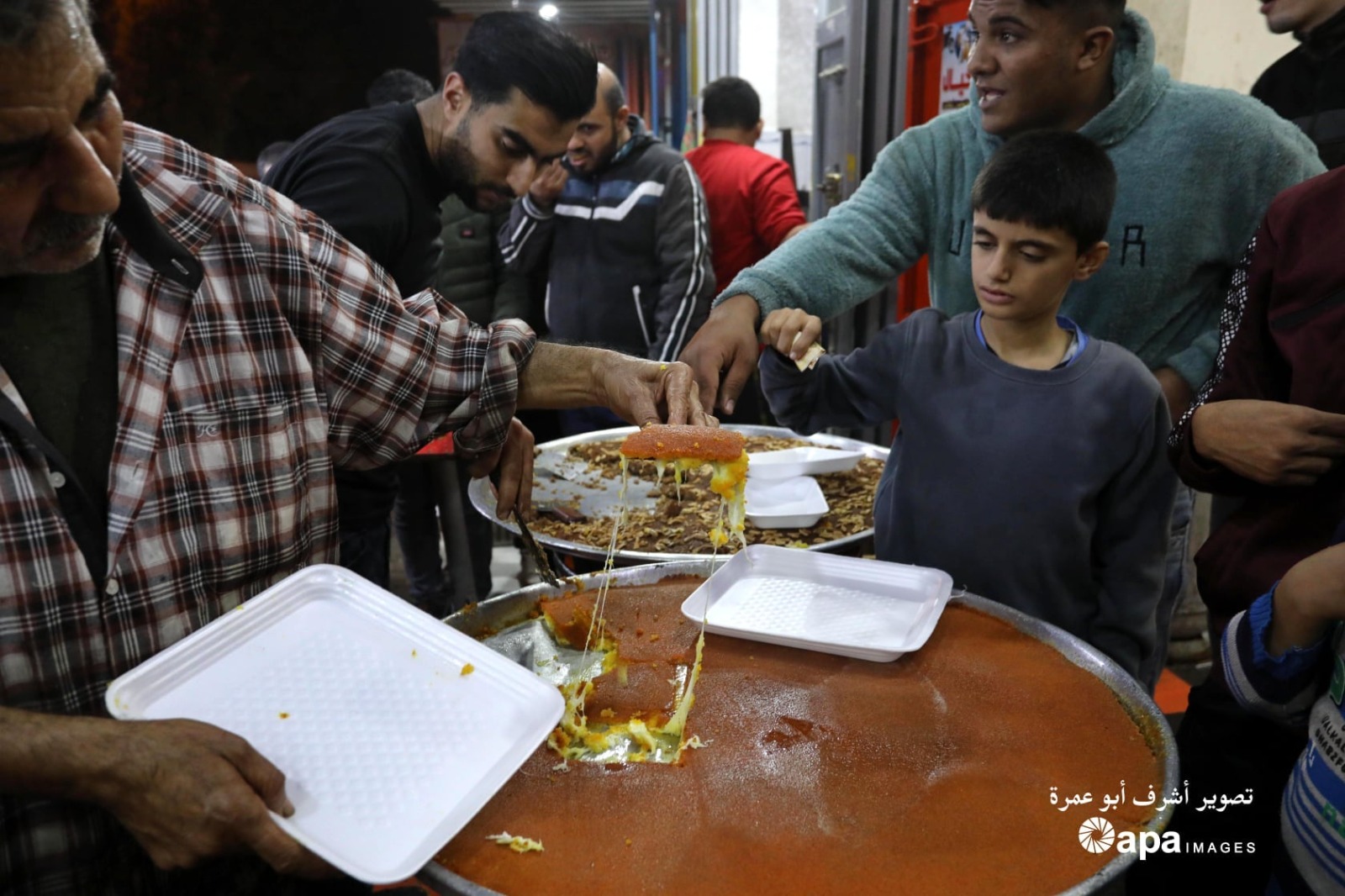
“They were used to him, used to being fed by him, and he loved them, and they loved him. But he left quickly, leaving behind a devastated Gaza filled with the poor who need someone to make sweets for those who remain after this painful war.”
Abu al-Ghalaba recently posted a video about his shop, saying:
“People call me Abu al-Ghalaba because whoever comes to me, I honor them. I don’t let them leave until they are fed.
“God has provided for me to alleviate the suffering of the poor. I feed both the young and the old, everyone who comes.
“I sell a plate for just one shekel, and thanks to God, it’s going well for us.”
(The Palestine Chronicle – All Photos: APA Images)
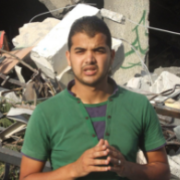
– Abdallah Aljamal is a Gaza-based journalist. He is a contributor for The Palestine Chronicle from the Gaza Strip. His email is abdallahaljamal1987@gmail.com



